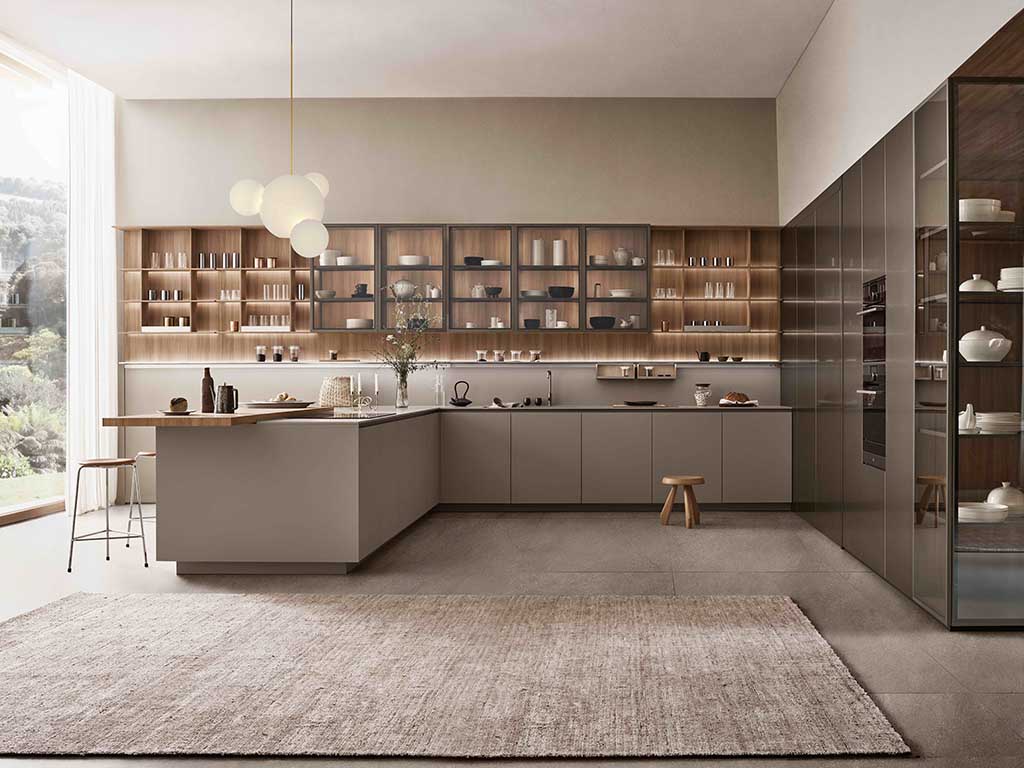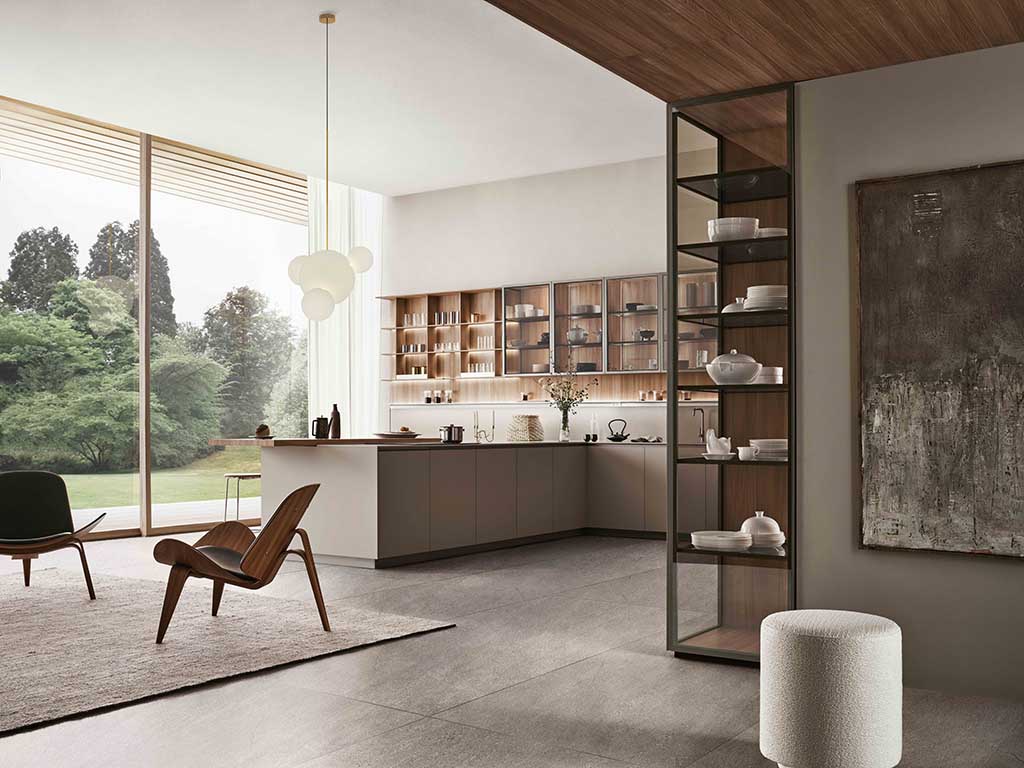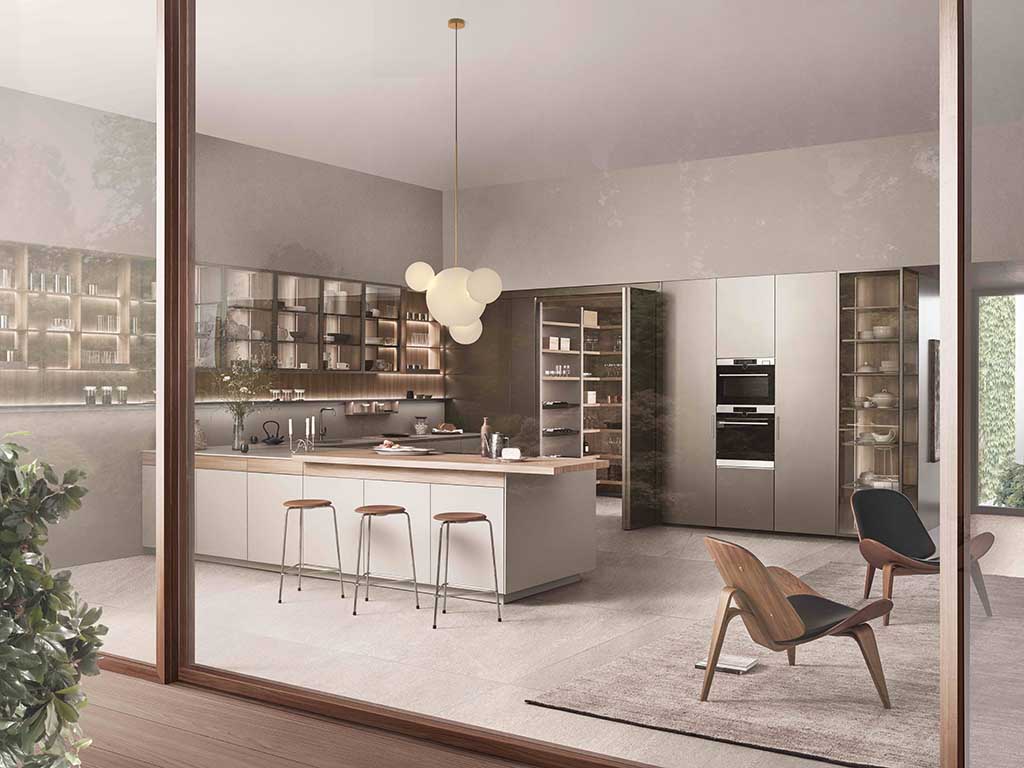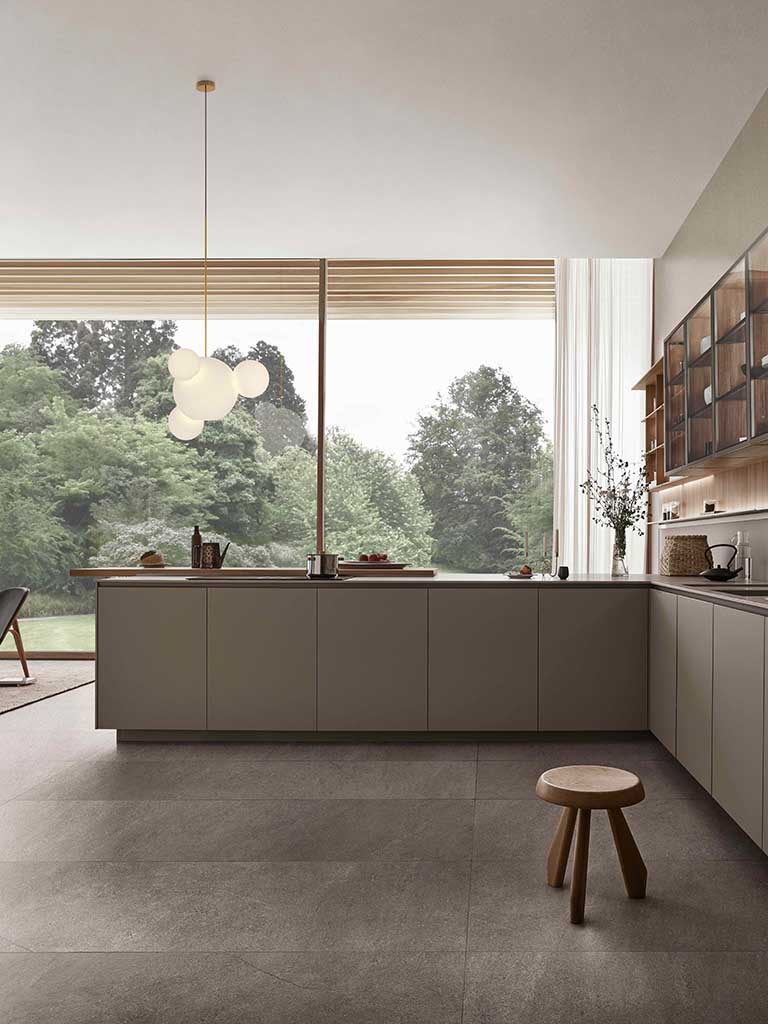The design of a kitchen environment can convey different sensations depending on how the elements are designed and placed together: lightness and brightness are characteristics often sought after by those who are designing their kitchens, to create a spacious and airy environment in which to pleasantly spend time between the cookers. This result can be achieved, for example, by creating an environment without closed elements, such as the classic wall units that tend to weigh down the kitchen space, but by enriching the design with novel solutions that “open up” to the other rooms in the home, embracing them lightly. Ernestomeda, with the Sign project, the kitchen model designed by Giuseppe Bavuso – the company’s architect and art director – moves precisely in this direction: the model is characterised by the absence of closed wall units, which give way to elements characterised by the transparency of the materials, which give breath and light to the environment. Space, then, is given to glass, which becomes the protagonist of the kitchen characterising wall units, display cabinets and open elements.

These solutions are studied down to the smallest detail to meet not only aesthetic requirements but also functional ones: Sign is designed to have performance levels very close to professional ones. The model represents one of the “richest” designs created by the brand and is characterised by the great variety of materials, finishes and structures that offer countless possibilities for combinations and customisation. The Sign composition proposed here fully represents the “lightness” of space that is given by the elements that characterise it, first and foremost the View wall units. With a structure in Hi-melamine Olmo Namib, these wall units are characterised by the transparency of the glass and become the perfect element to organise your kitchen space in an original way.
The wall paneling with Set panelling in Hi-melamine Olmo Namib caneté and Stay open shelves in Hi-melamine Olmo Namib also pursues the same purpose: this wall paneling is designed to “open” outwards in a functional manner. The Stay open shelves are the solution designed to contain accessories, decorative objects and utensils of various types, such as jar and spice racks, thus making the boiserie even more functional, without neglecting the strong aesthetic impact given by the aluminium profile that characterises them.

The model is then completed with theoperative area with base units in Fenix Beige Arizona with doors fitted with Zed handles in Flat Matt Beige Arizona lacquer, worktop in Fenix Beige Arizona with integrated Able washing area and chopping board in solid bamboo stained Olmo Namib. An equipped peninsula extends from the wall towards the centre of the room: this is Move-On Plus in Hi-melamine Olmo Namib, an innovative peninsula, presented here in the Snack version, characterised by a practical sliding top that reveals the equipped tool compartment below.
The Sign project can then be enriched with open elements with an elegant and refined design, such as Daylight, a solution with a decorative and functional soul, designed to create continuity with the living area and to integrate harmoniously into the kitchen environment thanks to the use of the same light and luminous finishes. These open structures can be placed on different elements, such as base units, wall units or cupboards, and are the ideal solution to organise your space tastefully, giving breath to the rooms. Depending on the structures chosen, Daylight open elements can be customised thanks to the vast choice of finishes available, to meet the needs and taste of those who live them.
Ernestomeda
Ernestomeda, a leading company in the market for high-profile designer kitchens, was founded in 1996 and produces high-value products at competitive prices, with a style capable of harmonising design, technology, sustainability and safety. The range now includes multiple programmes characterised by a wide variety of finishes and materials. The headquarters in Montelabbate (PU) cover over 32,000 square metres and employ 140 people, efficiently covering every single stage of the production chain. Ernestomeda’s mission to make design and quality accessible to many is well represented by its continuous drive towards research, safety and technological innovation, as testified by the important certifications obtained (Quality Management – UNI EN ISO 9001; Environmental Management – UNI EN ISO 14001; Workers’ Health and Safety Management – BS OHSAS 18001, later replaced by UNI ISO 45001; COSMOB Italian furniture origin certification – reference standard UNI 11674). The numerous certifications obtained over the years have recently been joined by the important Certification for Product Circularity, in compliance with the UNI EN ISO 14021 standard on environmental declarations. The new certification is part of a virtuous path taken by the company, which has always been sensitive to environmental and sustainability issues and has long been committed to reducing its footprint on the planet. ernestomeda.com











